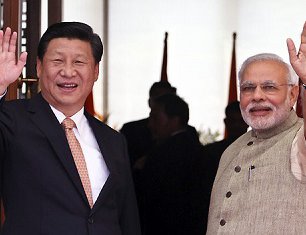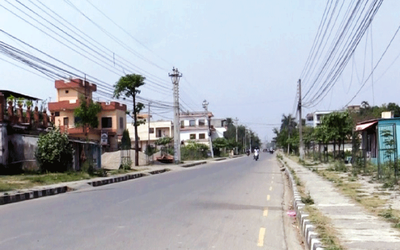
When Chinese President Xi Jinping visited India last week, it was Ahmedabad and not Delhi which rolled out red carpet for the top Chinese leader. Interestingly, he was the first important foreign dignitary ever to begin a visit from Indian Prime Minister Narendra Modi’s home state. The President’s landing in Gujarat saw the signing of three major MoUs between the state government and China to boost trade and investments. Gujarat already has about Rs 9,000 crore of promised investment from the Chinese.
That was probably the only unique feature of Xi’s visit to India. Although the Chinese President’s visit saw many unprecedented departures from the past including the usage of more informal gestures, it turned out to be nothing more than a routine diplomatic visit by a Chinese leader to India where talks of ‘resolving border issues’ and ‘boosting trade ties’ resound every time. As usual, reports of Chinese 'border incursions' also cast shadow over the visit. Even during Xi’s visit, around 1,000 Chinese soldiers were reported to have crossed the border into the Ladakh region of Indian-administered Jammu and Kashmir. After Modi, in his one-on-one meeting the president Xi, said that India was seriously concerned about the repeated incursions along the border, Xi pledged to resolve the border dispute at the earliest to improve peace and cooperation between both countries. But such commitments have been made numerous times before and, as in the past, there are little chances that things will change.
Statements given by the two leaders prior and post the visit showed that despite new and charismatic leaderships, relation between the two countries are far from getting better anytime soon. A fortnight before Xi set foot in India, Modi, in an indirect reference to China, said in a strong-worded statement that an 18th century expansionist mind-set was seen amongst countries even in today’s age. Beijing was outraged at Modi’s comment made from the Japanese soil but stopped short of commenting on it. In a subtle reply to Modi’s comment, President Xi said during the visit that China was not a warlike nation. In another instance before Xi’s visit, Foreign Minister Sushma Swaraj said that China must respect India's territorial claim over Arunachal Pradesh for India to agree to one-China policy. But what was shocking was the Chinese President’s statement just two days after completing his India visit where he said smooth relation with its neighbours was one of China’s priorities. Xi asked the People’s Liberation Army (PLA) to be ready for ‘regional war’ and make sure that all decisions from the central leadership were strictly followed. This showed that tall claims made during the President’s visit was nothing more than another diplomatic manoeuvre.
Like earlier visits, the two sides also agreed on investments aimed at significantly upgrading their commercial relationship with China pledging $20 billion over the next five years for industrial parks and infrastructure including railway technology. However experts said the amount pledged was far less than it had been expected and it is nothing compared to the deficit India faces in trade with China. China is currently India’s largest trading partner. Trade between the two developing nations has increased rapidly in the last decade, reaching around $70bn last year. But India's trade deficit with China has already amounted to about $40bn. Experts have also alleged that China uses India as a dumping ground for cheap manufactured goods.
Despite the shortcomings, there were hints that Xi preferred a more cordial relation with India in comparison with former Chinese leaders. His visit to South Asian countries like Maldives and Sri Lanka where Modi hasn’t visited is a sign that he is in no mood to challenge the Indian Prime minister by visiting the countries he has recently been to, including Nepal. Moreover, Xi’s decision to call off his Pakistan visit at the last moment won him appreciation from the Indian side. This could spell good news for the giant nations' small neighbours including Nepal.
- Ukrainian Crisis And The World (Dis)Order
- Apr 22, 2022
- China’s Cautious Steps In The Graveyard Of Empires
- Aug 18, 2021
- Foreign Aid On The Fence!
- Aug 08, 2021
- Communist Party of China centenary celebrations Reading between the lips
- Jul 14, 2021
- Second Wave Of Covid-19 In India: Deadly Blow To The Economy
- Jun 23, 2021
















